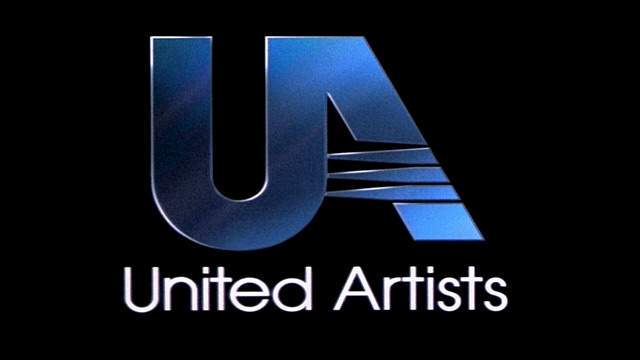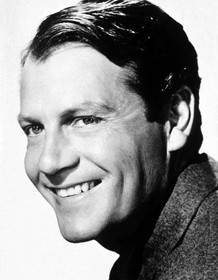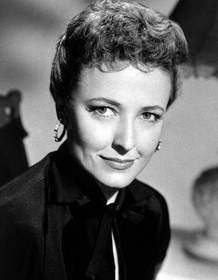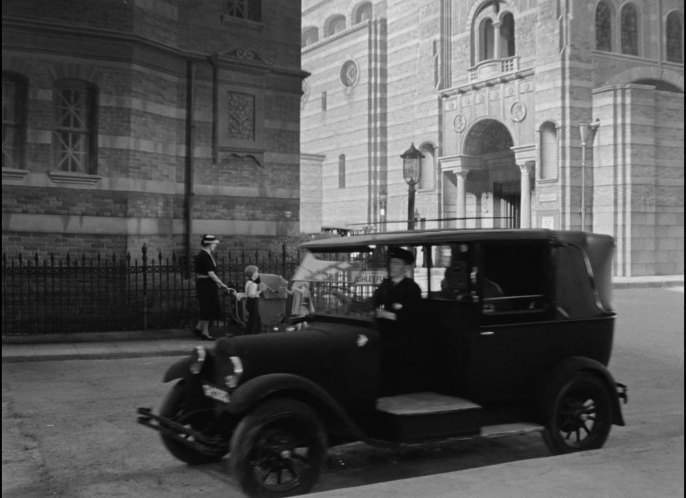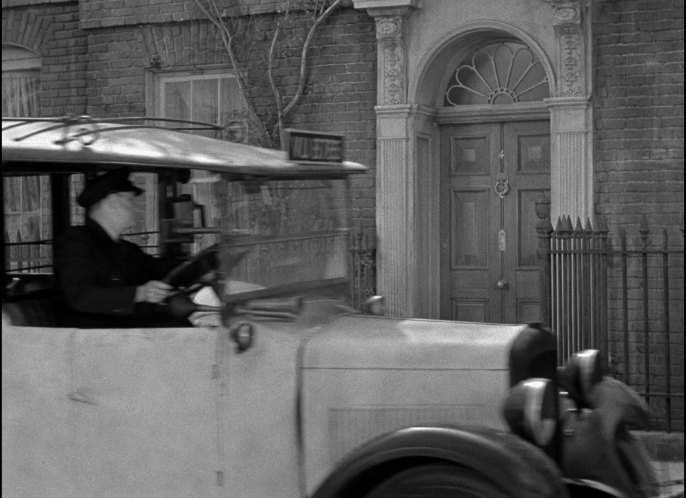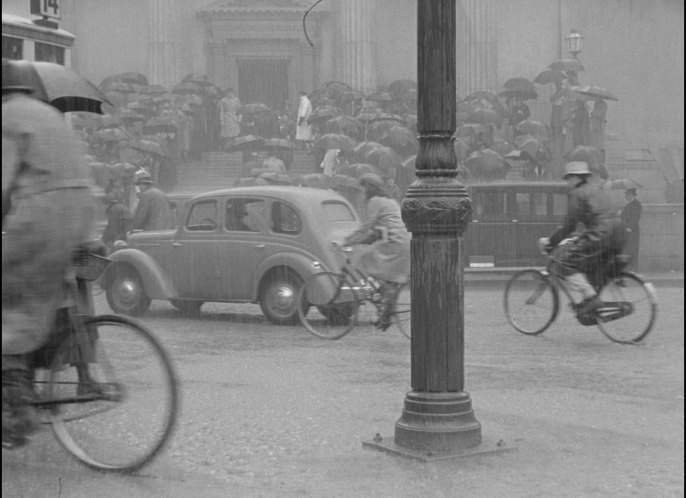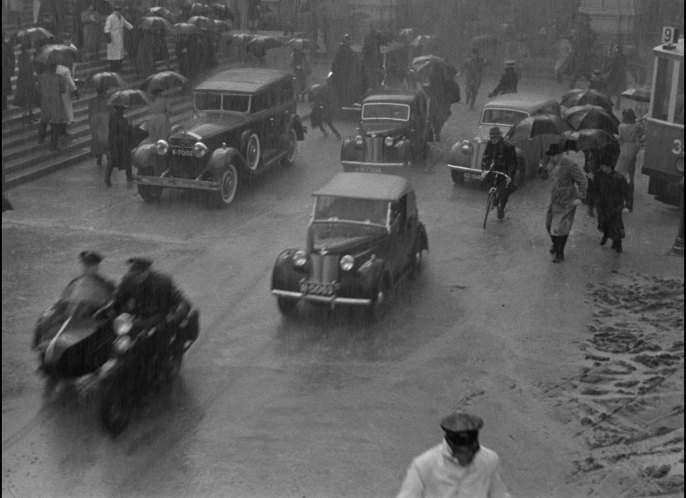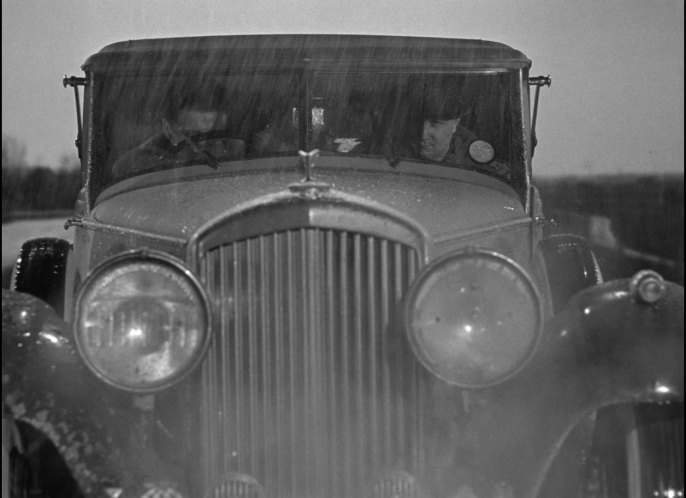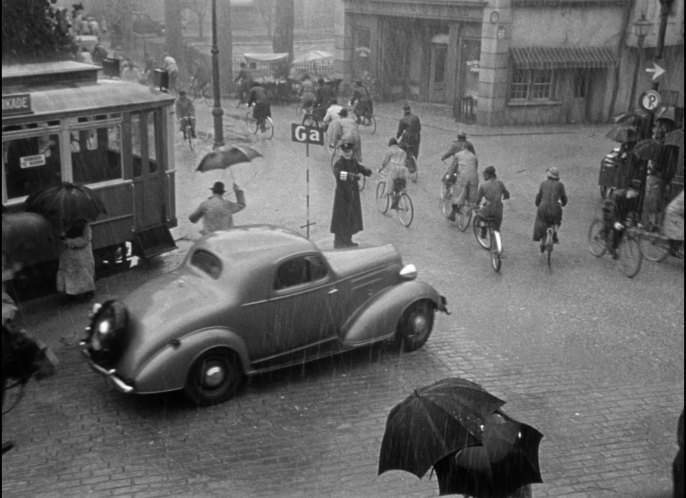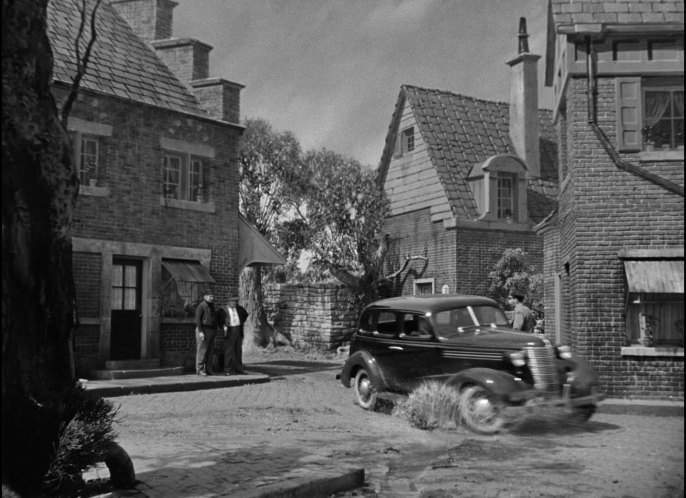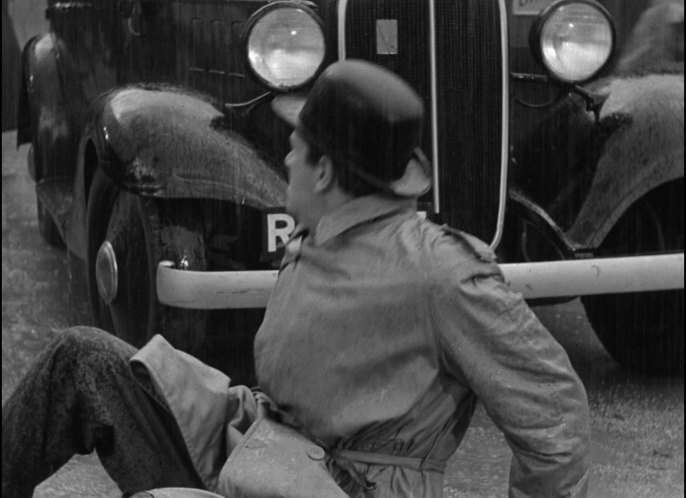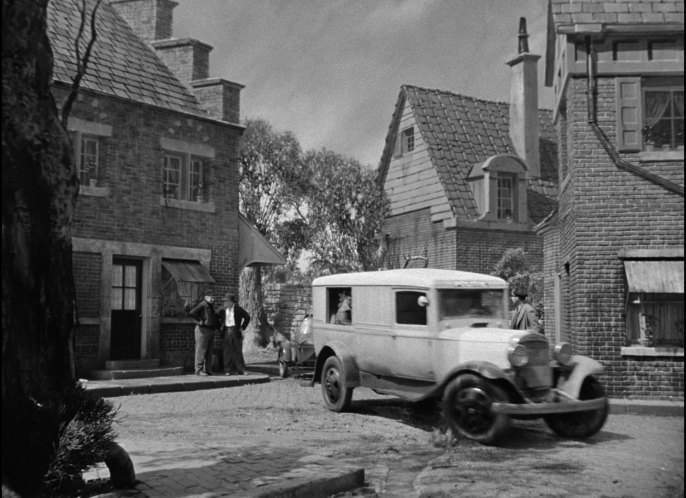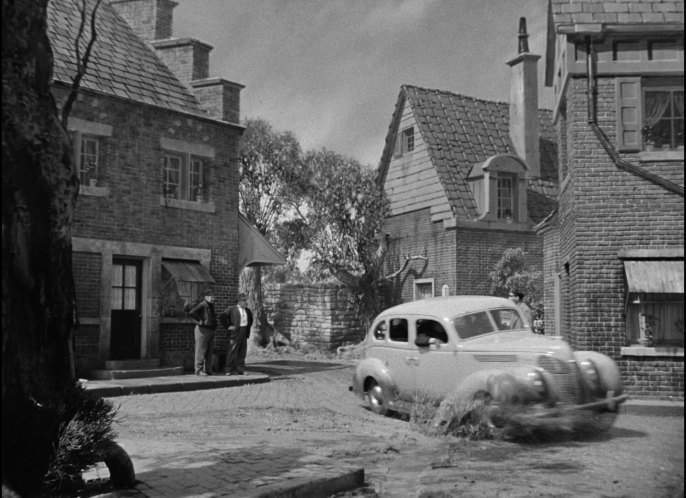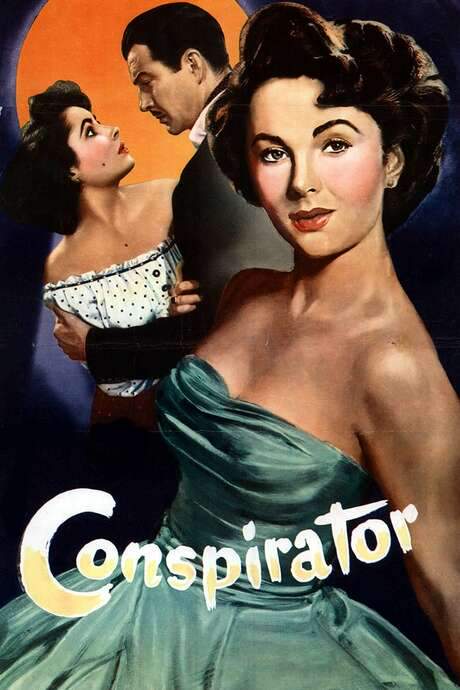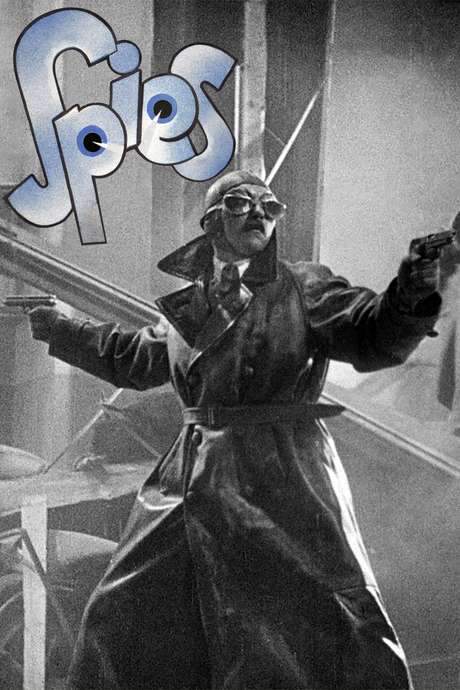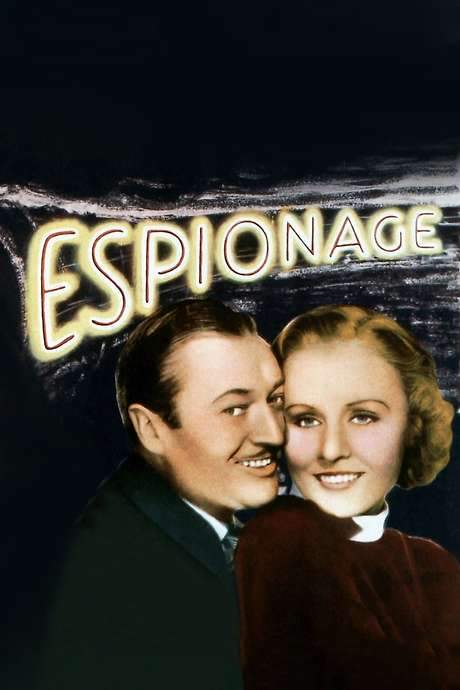Foreign Correspondent 1940
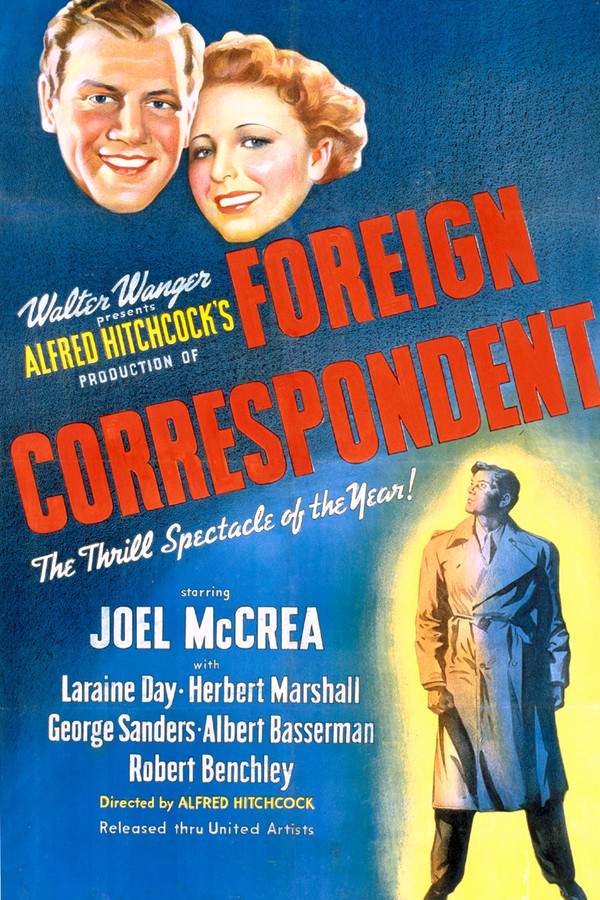
When a struggling crime reporter is sent to Europe for a fresh story, he finds himself caught in a dangerous game of international espionage. Amidst political intrigue and shadowy figures, he partners with a resourceful daughter of a politician and an experienced English journalist. Together, they must decipher a complex web of secrets and navigate a world where appearances can be deceiving, all while trying to uncover the truth and find his place in the unfolding drama.
Does Foreign Correspondent have end credit scenes?
No!
Foreign Correspondent does not have end credit scenes. You can leave when the credits roll.
Meet the Full Cast and Actors of Foreign Correspondent
Explore the complete cast of Foreign Correspondent, including both lead and supporting actors. Learn who plays each character, discover their past roles and achievements, and find out what makes this ensemble cast stand out in the world of film and television.
External Links and Streaming Options
Discover where to watch Foreign Correspondent online, including streaming platforms, rental options, and official sources. Compare reviews, ratings, and in-depth movie information across sites like IMDb, TMDb, Wikipedia or Rotten Tomatoes.
Ratings and Reviews for Foreign Correspondent
See how Foreign Correspondent is rated across major platforms like IMDb, Metacritic, and TMDb. Compare audience scores and critic reviews to understand where Foreign Correspondent stands among top-rated movies in its genre.

89
Metascore
7.4
User Score


95%
TOMATOMETER

81%
User Score

70
%
User Score
Take the Ultimate Foreign Correspondent Movie Quiz
Challenge your knowledge of Foreign Correspondent with this fun and interactive movie quiz. Test yourself on key plot points, iconic characters, hidden details, and memorable moments to see how well you really know the film.
Foreign Correspondent Quiz: Test your knowledge on the classic film 'Foreign Correspondent' from 1940 and its thrilling plot about espionage and love during the onset of World War II.
What is the pen name used by John Jones during his assignment in Europe?
Huntley Haverstock
John Doe
Jack Ryder
Edward Blake
Show hint
Awards & Nominations for Foreign Correspondent
Discover all the awards and nominations received by Foreign Correspondent, from Oscars to film festival honors. Learn how Foreign Correspondent and its cast and crew have been recognized by critics and the industry alike.
The 13th Academy Awards 1941
Actor in a Supporting Role
Art Direction (Black-and-White)
Cinematography (Black-and-White)
Outstanding Production
Special Effects
Writing (Original Screenplay)
Full Plot Summary and Ending Explained for Foreign Correspondent
Read the complete plot summary of Foreign Correspondent, including all major events, twists, and the full ending explained in detail. Explore key characters, themes, hidden meanings, and everything you need to understand the story from beginning to end.
In mid-August 1939, just on the brink of World War II, the astute editor of the New York Morning Globe, Mr. Powers (Harry Davenport), dispatches crime reporter John Jones, who writes under the alias “Huntley Haverstock” (Joel McCrea](/actor/joel-mccrea)), to Europe to cover the unfolding situation. His initial assignment involves interviewing a Dutch diplomat, Van Meer (Albert Bassermann), during a luncheon.
On their way to the event, Jones shares a cab with Van Meer. Despite his probing questions about the looming threat of war, Van Meer artfully avoids giving any substantial responses. At the luncheon, Jones finds himself enchanted by Carol (Laraine Day](/actor/laraine-day)), whose role remains ambiguous. Attempting to seize an opportunity, he invites her to sit at his table, claiming that the reporters present would ignore the speeches. However, a charming host, Stephen Fisher ([erbert Marshall), announces that Van Meer is ill and can’t attend, prompting his daughter Carol to speak in his stead. In a misfortunate turn, Jones realizes he has unintentionally offended the very woman he has grown to admire.
Powers subsequently assigns Jones to cover Van Meer’s next appearance at a gathering of the Universal Peace Party in Amsterdam. When Jones greets Van Meer outside the conference, he notices that the diplomat appears to be in a trance and fails to recognize him. Suddenly, a photographer attempting to capture Van Meer’s image conceals a firearm within the camera, leading to a shocking assassination. Jones instinctively pursues the shooter and crosses paths with Carol and her friend Scott ffolliott (George Sanders), whom they join in the chase. Though they initially lose the suspect, Jones suspects he may have sought refuge inside a windmill.
While Carol and ffolliott head off to alert the authorities, Jones investigates the windmill and discovers Van Meer, heavily sedated but alive. The diplomat can only manage to express that the man shot earlier was not who he seemed. Jones narrowly escapes to bring the news of Van Meer’s survival to the police, only to find that both the diplomat and his captors have vanished when they arrive back at the scene.
Later, while in his hotel room in Amsterdam, two spies posing as police attempt to abduct him. Sensing danger, Jones leaps out of the bathroom window, where he unexpectedly encounters Carol once again. Their journey continues aboard a British ship to England, during which, amidst a raging storm, Jones proposes to Carol, and she joyfully accepts. Upon arriving in England, they visit Carol’s father, where Jones spots Krug (Eduardo Ciannelli), the man he recognizes from the windmill as being involved in the assassination and kidnapping plot. The situation escalates when Fisher and Krug, realizing Jones knows too much, plot his demise. In a twist of fate, Fisher informs Jones of impending danger, offering him a bodyguard, Rowley (Edmund Gwenn). However, this apparent protector attempts to eliminate Jones during a visit to the top of Westminster Cathedral, ultimately leading to his own death.
Determined to expose Fisher as a traitor, Jones and ffolliott concoct a plan: to take Carol to Cambridge while ffolliott pretends that she has been kidnapped to extract Van Meer’s location from her father. Carol, believing she is protecting Jones, becomes suspicious when she overhears him reserving two adjoining rooms, interpreting it as a deceitful ploy for a more intimate encounter. In a rush, she leaves for home, ultimately thwarting ffolliott’s efforts.
Meanwhile, ffolliott trails Fisher to a secret hotel where Van Meer is held captive. He finds himself in a perilous situation, captured at gunpoint and brought face-to-face with the spies torturing Van Meer for details of a critical treaty clause—Clause 27—a secret that could shift the balance as war looms. In a suspense-filled struggle, ffolliott manages to escape just as Jones arrives with reinforcements, and they rescue Van Meer before Fisher makes his getaway. The recovered diplomat is swiftly taken to a hospital to recuperate.
As Britain and France declare war on Germany, Jones and ffolliott pursue the Fishers, hoping to bring them to justice. When Fisher intercepts a telegram confirming Van Meer’s survival and acknowledgment of Fisher’s treachery, he turns to Carol, seeking her loyalty while contemplating his fate. Desperate, Jones entreats Carol to rekindle their relationship, but before any resolution can come, the airplane they’re on is attacked, crashing into the ocean.
Surviving the wreck, the group clings to the floating wing of the downed aircraft. As they grapple with their dwindling chances of survival, Fisher selflessly sacrifices himself, slipping into the sea so the others may live. Eventually, an American ship comes to their rescue. However, the captain enforces communication restrictions due to American neutrality, leaving Jones, ffolliott, and Carol to relay their findings surreptitiously. Upon returning to England, Jones stands side by side with Carol, evolving into a successful war correspondent. As he captivates listeners in a live radio broadcast, he passionately describes the bombings in London, urging Americans to “keep those lights burning” as darkness envelops the studio.
Uncover the Details: Timeline, Characters, Themes, and Beyond!

Coming soon on iOS and Android
The Plot Explained Mobile App
From blockbusters to hidden gems — dive into movie stories anytime, anywhere. Save your favorites, discover plots faster, and never miss a twist again.
Sign up to be the first to know when we launch. Your email stays private — always.
Watch Trailers, Clips & Behind-the-Scenes for Foreign Correspondent
Watch official trailers, exclusive clips, cast interviews, and behind-the-scenes footage from Foreign Correspondent. Dive deeper into the making of the film, its standout moments, and key production insights.
Cars Featured in Foreign Correspondent
Explore all cars featured in Foreign Correspondent, including their makes, models, scenes they appear in, and their significance to the plot. A must-read for car enthusiasts and movie buffs alike.
Foreign Correspondent Themes and Keywords
Discover the central themes, ideas, and keywords that define the movie’s story, tone, and message. Analyze the film’s deeper meanings, genre influences, and recurring concepts.
Foreign Correspondent Other Names and Titles
Explore the various alternative titles, translations, and other names used for Foreign Correspondent across different regions and languages. Understand how the film is marketed and recognized worldwide.
Similar Movies To Foreign Correspondent You Should Know About
Browse a curated list of movies similar in genre, tone, characters, or story structure. Discover new titles like the one you're watching, perfect for fans of related plots, vibes, or cinematic styles.
Quick Links: Summary, Cast, Ratings, More

What's After the Movie?
Not sure whether to stay after the credits? Find out!
Explore Our Movie Platform
New Movie Releases (2026)
Famous Movie Actors
Top Film Production Studios
Movie Plot Summaries & Endings
Major Movie Awards & Winners
Best Concert Films & Music Documentaries
Movie Collections and Curated Lists
© 2026 What's After the Movie. All rights reserved.


